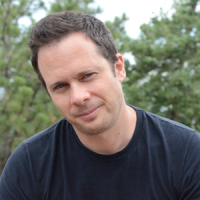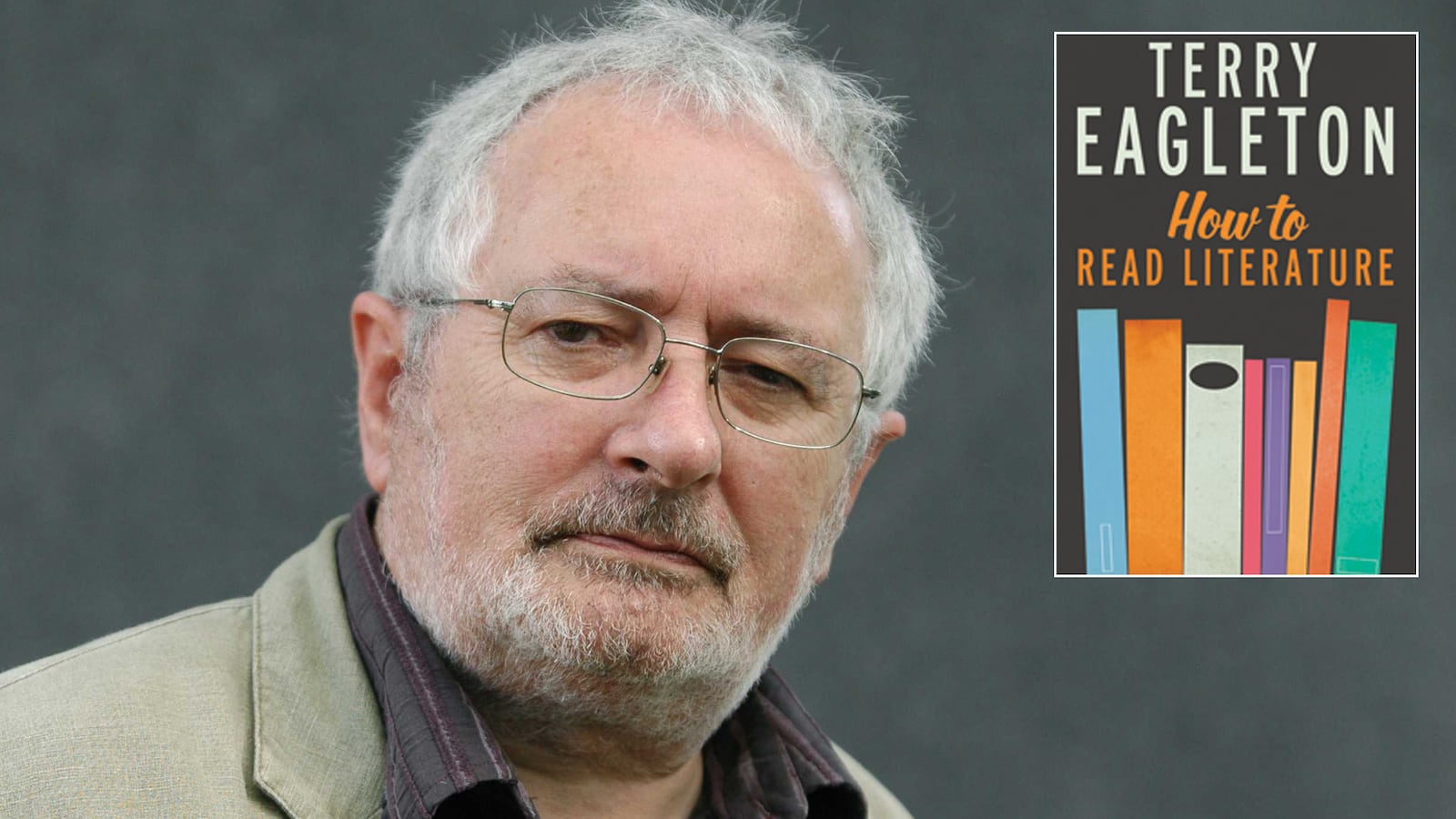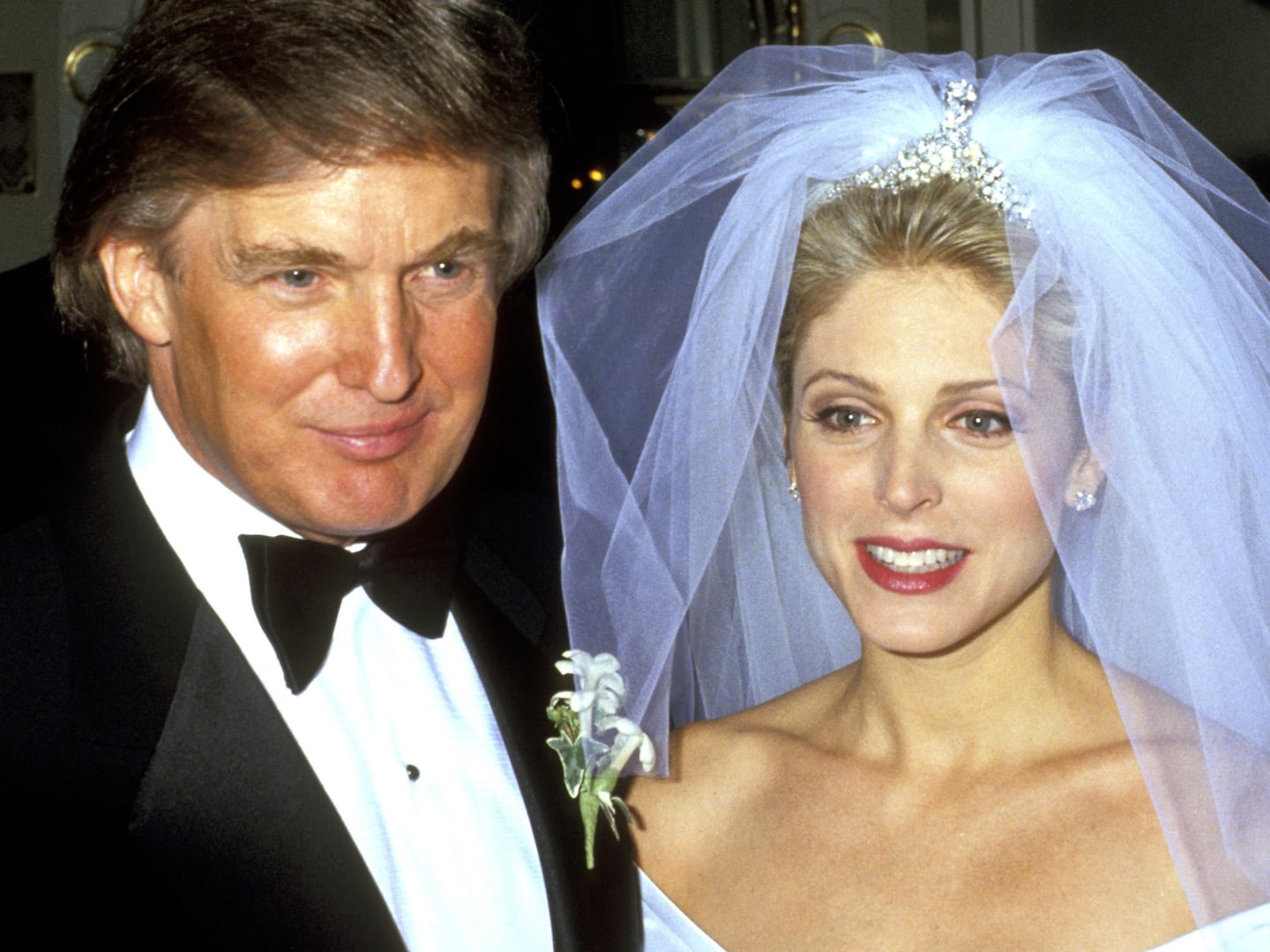
It might not bode well for our culture that we require a book called How to Read Literature. Nor might it bode well for Terry Eagleton, globally renowned literary critic cum Marxist provocateur, that he felt urged for the second time in his career to partake of the “how to” racket (the first time was a book called How to Read a Poem). The good news is that to whatever topic Eagleton turns his pen—and he’s the Joyce Carol Oates of literary and cultural comment, with 16 books since the start of the millennium alone and dozens more since he began publishing in 1966—he is almost always titillating. Almost. He can’t quite achieve the unerring charisma of his onetime socialist compatriot Christopher Hitchens, or of his relatively new adversary Martin Amis (Eagleton caused a British newspaper row with Amis in 2007 after Amis reprehended Islamism in tones too strident for the exhaustingly sensitive Eagleton), but like his two countrymen, and like his hero Oscar Wilde, he is rarely boring. For Wilde, to be boring was the only unpardonable sin, and although Eagleton has manifold bogeymen—America and capitalism the pair he most loves to hate—you get the feeling that he too will not abide boredom. It’s a special talent indeed that allows one to be intellectually enthralling even when extravagantly incorrect.
His last year’s effort The Event of Literature—as with After Theory from 2003—was stunning for how little literature it actually contained. Eagleton is at bottom a political ideologue: he’s incapable of not rubber-banding on a bushy Marx beard whenever he sits down to think. That’s not an insurmountable problem if your business is political policy, but when your business is literature, that bushy beard obscures and distorts the pages in your lap. Just as a narcissist writes poorly because his pen keeps bumping into his ego, a Marxist thinks poorly about literature because his brain keeps bumping into Marx.
The grand and grandstanding doyens of literary theory—Lacan, Derrida, Barthes, Foucault, and all the redheaded stepchildren in academia they helped rear, Eagleton included—never seem to find literature acceptable on its own. They are like belittling husbands who think better of their wives only after they alter them with weight loss and a new wardrobe. Harold Bloom famously dubbed them the School of Resentment, “a pride of displaced social workers.” Entire quadrants in some of Eagleton’s tomes—Criticism and Ideology (1976), The Function of Criticism (1984), The Illusions of Postmodernism (1996)—are charmless experiments with incoherence, a goulash of French and German theorizing that asphyxiates literature beneath its feculent heft and makes one wonder why this man didn’t go into either particle physics or the clergy. In addition to being a virulent Marxist, Eagleton is also a troubled Catholic, which might do much to explain why he’s so often in a foul mood. In 2009 he published a book defaming Hitchens and Richard Dawkins because he was irked by their bellicose brand of atheism. He also once wrote an article calling for the abolishment of soccer.
So it’s something of a relief to read Eagleton in his populist “how to” mode, although, in fairness, he doesn’t have to be writing “how to” in order to attain intelligibility: Sweet Violence: The Idea of the Tragic (2003), The Meaning of Life (2007), and On Evil (2010)—which he slyly dedicated to Henry Kissinger—are beautifully readable and wise. How to Read Literature begins with this throat clearing: “One cannot raise political or theoretical questions about literary texts without a degree of sensitivity to their language. My concern here is to provide readers and students with some of the basic tools of the critical trade, without which they are unlikely to be able to move on to other matters. I hope to show in the process that critical analysis can be fun.” First, referring to literature as a “text” has always been one of the theorist’s linguistic mistakes, assuming as it does that literature isn’t really art but rather a hook on which an academic can hang his sociopolitical laundry. Second, the raising of “political or theoretical questions” is not the charge of the average intelligent reader who goes to novels, poems, and plays for aesthetic delight, pieces of wisdom about the world, and a fresh way of seeing; that reader does not care “to move on to other matters”—there are no other matters, unless you harbor dreams of becoming a theorist, in which case you have more serious problems. Third, Eagleton couldn’t be more correct about the importance of language. And fourth, “fun” is overstating it just a bit, is it not? When done well, the creation of literary comment, like the creation of all literature, is a grueling endeavor, a battle in the trenches for emotional verity, for the life of ideas, for le mot juste. This inclination to fun is part of the reason our culture swells and throbs with such awful writing—if legions of scribblers would find writing a little less fun and reading first-rate books a little more important, we might be saved daily from the onslaught of palsied prose.
Eagleton divvies up this book into five engaging chapters—“Openings,” “Character,” “Narrative,” “Interpretation,” “Value”—and shows his mettle as an Eliotic close reader of sentences and verse (and there’s a shadow of irony there since in Literary Theory, the million-plus-selling book that made his name in 1983, Eagleton had nothing sweet to say about the New Critical method of reading). “Part of what we mean by a ‘literary’ work,” he writes, “is one in which what is said is to be taken in terms of how it is said. It is the kind of writing in which the content is inseparable from the language in which it is presented.” There follows some astute and amusing scrutiny of the openings in A Passage to India (the lines have a “delicate equipoise”), Macbeth (“the play opens on an interrogative note ... which helps to generate an atmosphere of uncertainty, anxiety, and paranoid suspicion”), Pride and Prejudice (“in an ironic reversal, the desire which the sentence ascribes to wealthy bachelors is actually one felt by needy spinsters”), and Moby Dick (eager to state his chosen name, Ishmael “is concealing his actual name from us, and doing so just at the moment when he seems most intimate and inviting”).
About Othello: “Teamwork is not his strongest point. He lives straight out of a self-image.” Hamlet “is not simply a despondent young prince; he is also ... the embodiment of certain ways of seeing and modes of feeling which stretch far beyond himself.” There are five meticulous pages on Sue Bridehead of Hardy’s Jude the Obscure (Eagleton never misses a chance to flash his feminist badge); riveting bits on Defoe, Sterne, and the Irish novelist Flann O’Brien; and, alas, six pages spent on the Harry Potter books (how a critic of Eagleton’s esteem can count Rowling’s rheumatoid sentences as literature is a mystery fit for Stephen Hawking). There’s also an exceedingly funny assessment of the nursery rhyme “Baa Baa Black Sheep”—the speaker “is clearly something of a sheepist”—and everywhere comical asides such as: D.H. Lawrence “is not at his most admirable when dealing with people in wheelchairs,” and: “Who, contemplating a slimy, self-involved little mollusk billions of years ago, would have imagined the emergence of Tom Cruise?”
Professor Eagleton has always been a tad obsessed with movie stars: you will find their names scribbled into nearly every nook of his work, and he once advertised his love for Kate Winslet in Prospect magazine. Hard to object to that (unless you’re Kate Winslet), but one is duty-bound by Homo sapies taste and nonreptilian morality to reject this assertion in his new book: “The Creation was the first item on the divine agenda, before God went on to organize dreadful weather for the English and in a calamitous lapse of attention allowed Michael Jackson to slip into existence.” It’s up to you, reader, whether you want to follow someone categorically incapable of recognizing the one-off genius of Michael Jackson. As Nietzsche said of God, it’s not preferable to believe in a literary critic who doesn’t dance.
The most needed chapters in How to Read Literature are the last, “Interpretation” and “Value,” in which Eagleton rightly castigates “the doctrine of literature as self-expression, much favored by some creative writing courses.” According to this bathetic doctrine, “a literary work is the sincere expression of some experience that the author has had,” and yet “it is not clear what personal experience the author of the Iliad was trying to share with us”—of course he wasn’t trying to share any personal experience at all. A writer “should not make a fetish of personal experience.” Eagleton means, à la Bloom, that experience or expression are often anemic substitutes for intellectual and psychological assertion, for the tentacled might of imagination. Remember when the scourge we call creative writing was called “imaginative literature”? One does not need to deify human imagination, as Wordsworth did, to understand that it must take precedence over personal experience if a book is going to be more than a mere simulacrum of reality. Who needs another simulacrum of reality? “The point of art,” writes Eagleton, channeling the Romantics, “is not to imitate life but to transform it.” And how does that transformation occur? Originality of vision and vigor of language.
And so we come now to Eagleton’s own language. One requires a counselor to help explain how someone so attentive to the words of others can often be so frivolous with his own. If Eagleton had sent a cliché constable to patrol his streets of sentences, we'd have been saved assault by the following hoodlums: “pulling out all the stops,” “a hair’s breadth,” “packs a formidable punch,” “stuffed to the rafters,” “the skin of his teeth” (three times), “random thoughts,” “one fell swoop,” “without rhyme or reason,” “a thin line,” “stuck in their ways,” “the tip of the iceberg,” “tender hearted” (with an AWOL hyphen), “load the dice,” “only skin deep” (twice), “something to be desired,” “bare bones” (twice), “safe haven,” “by the sweat of his brow,” “dreams of grandeur,” “bleeding-heart liberal” (at least it has its hyphen), “head over heels,” “out of thin air,” “paper-thin,” “the best of both worlds,” “rags to riches,” and “cheek by jowl.” Please don’t ever wed “beyond” to “pale” or “shed” to “light”—Eagleton presides over those delinquent nuptials twice apiece.
The distinguished professor of literature at the University of Lancaster cannot hear the clumsy redundancies in “he thinks to himself,” “bound together,” “realistically convincing,” “society at large” (as opposed to society at small?), “outward appearances,” and “shimmering sheen.” Nor can he hear the sloppy dissonance in such pairings as “sheer packedness” and “slightly strangely,” or the plangent echo in this sentence: Forster “was one of the most renowned liberal thinkers of his time, at a time when liberalism was in shorter supply than it is today.” Nor does “one of the most influential literary critics in the English-speaking world”—according to his press kit—know that Waugh’s construction “as the car turned into the gates of the County Asylum” is not a “phrase” but, rather, a subordinate clause. Dickens’s characters are both “inscrutable” and “cryptic,” as if those adjectives have separate meanings. Why would he choose to write “Magwitch threatens to gobble the child Pip up” and not the vastly less grating “Magwitch threatens to gobble up the child Pip”? Eagleton also refers at one point to “the mystery of birth,” and it’s clear then that someone slept through his high school biology class.
Eagleton should mind the above catalog of misdeeds, because anyone who thinks even part time in that handy jargon cannot be trusted with England’s youth. Chesterton wrote: “It is difficult to believe that people who are obviously careless about language can really be very careful about anything else.” In 2000, before Eagleton’s own forays into the world of “how to,” he strafed Harold Bloom’s How to Read and Why. He begins with a tremendous misunderstanding of Bloom’s famed theory of anxiety and influence, sinks to labeling Bloom “as American as cherry pie”—of course he means apple pie: if you’re going to fulminate against America with such unstinting bravado, you should, at the very least, get our pies straight—and then this: “It would be charitable to think that Bloom writes as slackly and cack-handedly as he does because he is out to attract the general reader. He is admirably intent on rescuing literature from the arcane rituals of US academia and restoring it to a wider audience. Even so, you cannot help suspecting that this rambling, platitudinous stuff is about the best he can now muster.” And with those lines the great Terry Eagleton showed himself capable of not only grotesque misreading—most are capable of that—but of something truly extraordinary: the ability to tell his own future.






